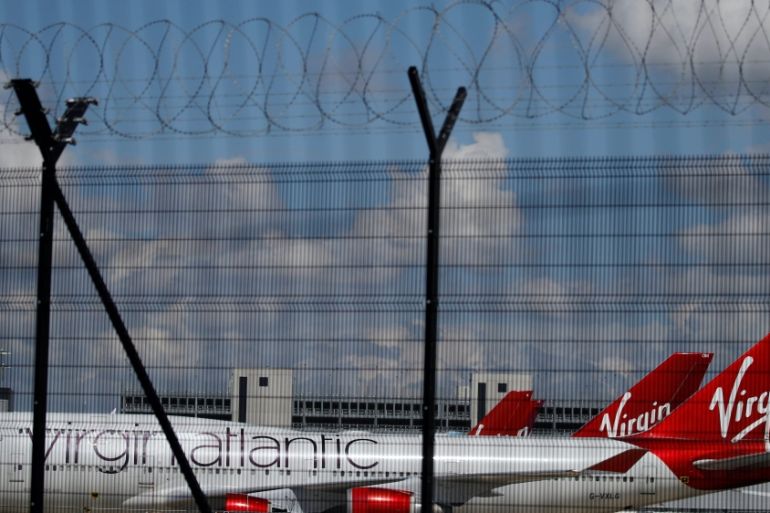Virgin Atlantic: 1,150 more job cuts after completing rescue deal
The airline said it was entering a company-wide consultation on the job reductions which fall across all functions.

Virgin Atlantic plans 1,150 more job cuts due to a slow recovery in demand, the airline said on Friday after completing a restructuring plan designed to keep it going through the coronavirus crisis.
The airline, which is 51 percent owned by Richard Branson’s Virgin Group and 49 percent by the US’s Delta Air Lines Inc, has already cut more than 3,500 jobs to contend with the fallout from the pandemic, which has grounded planes and hammered demand for air travel.
Keep reading
list of 4 itemsAir Vanuatu goes into liquidation, thousands of passengers stranded
Boeing 737: Plane skids off runway in Senegal, tyre bursts in Turkey
India budget airline cancels more than 80 flights after crew call in sick
“After the sacrifices so many of our people have made, further reducing the number of people we employ is heart-breaking but essential for survival,” Chief Executive Shai Weiss said.
Virgin Atlantic confirmed the completion of its 1.2 billion pounds ($1.59bn) rescue deal on Friday, after a London court gave it the go-ahead earlier in the week, but said it needed to go further.
The airline said it was entering a company-wide consultation on the job reductions, which fall across all functions, and would discuss the cuts with trade unions Unite and the British Airline Pilots Association.
Travel restrictions on British nationals going to the US had been in place much longer than anticipated, Virgin Atlantic said, adding the outlook for transatlantic routes was that current skeleton operations would not be extended until 2021.
Transatlantic flying is 70 percent of Virgin Atlantic’s network, and the airline called on the UK to replace its policy of travellers having to quarantine for 14 days, with testing.
“It’s clear that the introduction of passenger testing is the only way to enable the removal of travel restrictions and open up flying to key markets while protecting public health,” Weiss said.